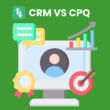Table of Contents Show
Starting a cleaning business can be a lucrative and rewarding venture. With the increasing demand for cleaning services, particularly in the wake of heightened hygiene awareness, the cleaning industry offers a vast array of opportunities for entrepreneurs.
Whether you’re looking to provide residential cleaning, commercial cleaning, or specialized services, a well-planned approach can set you on the path to success.
In this comprehensive guide, we’ll walk you through the essential steps to start your own cleaning business, from research and planning to marketing and growth strategies.
Steps to Start A Cleaning Business:
1. Research and Planning
Before diving into the cleaning industry, conducting thorough research and planning is crucial. Understanding the landscape of the industry will help you identify your target market and assess the level of demand and competition in your area.
Understanding the Industry
The cleaning industry encompasses a variety of services, including residential cleaning, commercial cleaning, and specialized cleaning (e.g., carpet cleaning, and window cleaning). Each segment has its unique characteristics and requirements.
For instance, residential cleaning typically involves routine cleaning tasks such as dusting, vacuuming, and sanitizing surfaces. In contrast, commercial cleaning might include more extensive tasks like floor care and post-construction cleanup.
Identifying Your Target Market
Determine whether you want to focus on residential clients, commercial clients, or both. Residential cleaning is often more personal and may require building relationships with homeowners, while commercial cleaning contracts might be larger and provide a steady income from businesses or offices.
Conducting Market Research
Conduct market research to understand the needs and preferences of your potential clients. Look at your competitors, their service offerings, pricing, and customer reviews. This information will help you identify gaps in the market and opportunities to differentiate your business.
2. Creating a Business Plan
A business plan serves as a roadmap for your cleaning business. It outlines your business goals, strategies, and financial projections, and it’s essential for securing funding and guiding your operations.
Key Components of a Business Plan
- Executive Summary: A brief overview of your business, including your mission statement and key objectives.
- Business Description: Detailed information about your business, the services you offer, and the market you serve.
- Market Analysis: Insights into your target market, competitor analysis, and market trends.
- Organizational Structure: Outline your business’s organizational structure, including roles and responsibilities.
- Services Offered: A list of the cleaning services you will provide, along with detailed descriptions.
- Marketing Plan: Your strategy for attracting and retaining customers, including your marketing channels and tactics.
- Financial Projections: Estimated startup costs, revenue projections, and a break-even analysis.
3. Budgeting and Financing
Starting a cleaning business requires an initial investment in equipment, supplies, marketing, and other startup costs. Creating a detailed budget will help you manage your finances and plan for future expenses.
Estimating Startup Costs
Some of the primary startup costs for a cleaning business include:
- Cleaning Supplies and Equipment: Vacuum cleaners, mops, cleaning solutions, gloves, and other necessary tools.
- Marketing Expenses: Website development, business cards, flyers, and online advertising.
- Insurance and Licenses: Liability insurance, workers’ compensation insurance, and any required business licenses.
- Uniforms and Branding: Branded uniforms and vehicle signage.
Creating a Budget
Outline all potential expenses and categorize them into one-time startup costs and ongoing operational costs. This will help you understand your initial financial needs and plan for future expenses.
Exploring Financing Options
Consider various financing options to fund your startup costs:
- Personal Savings: Using your savings to fund your business.
- Loans: Applying for a small business loan from different options.
- Grants: Looking for grants specifically for small businesses or minority-owned businesses.
- Investors: Seeking investment from friends, family, or angel investors.
4. Choosing a Business Structure
Selecting the right business structure is crucial for legal and tax purposes. The main options include sole proprietorship, partnership, limited liability company (LLC), and corporation.
Overview of Business Structures
- Sole Proprietorship: The simplest structure, where you own and operate the business alone. It’s easy to set up but offers no personal liability protection.
- Partnership: Involves two or more people sharing ownership and responsibilities. It requires a partnership agreement and provides some flexibility but limited liability protection.
- LLC: Offers liability protection while being relatively easy to set up and manage. It combines the benefits of a corporation and a partnership.
- Corporation: A more complex structure with greater liability protection, but it involves more regulations and administrative work.
Steps to Register Your Business
Once you’ve chosen a structure, you’ll need to register your business name and apply for any necessary licenses and permits. This process varies by location, so check with your local government for specific requirements.
5. Legal Requirements and Certifications
Complying with legal requirements and obtaining relevant certifications can enhance your credibility and protect your business.
Necessary Licenses and Permits
Research the licenses and permits required in your area for operating a cleaning business. Common requirements include a general business license and a specialized cleaning service license.
Insurance Requirements
Insurance is essential for protecting your business from potential risks. Key types of insurance include:
- General Liability Insurance: Covers third-party claims for bodily injury, property damage, and personal injury.
- Workers’ Compensation Insurance: Required if you have employees, covering medical expenses and lost wages for work-related injuries.
- Bonding: Provides financial protection if an employee commits theft or fraud while on the job.
Certifications that Enhance Credibility
Obtaining industry certifications can demonstrate your expertise and commitment to quality. Some valuable certifications for cleaning businesses include:
- Institute of Inspection Cleaning and Restoration Certification (IICRC): Recognized standards for cleaning, inspection, and restoration.
- International Sanitary Supply Association (ISSA): Offers certifications and training for cleaning professionals.
6. Branding Your Cleaning Business
A strong brand identity helps differentiate your business and build customer trust. Your brand encompasses your business name, logo, and overall image.
Importance of a Strong Brand Identity
A recognizable brand can attract customers and create a lasting impression. It reflects your values, professionalism, and the quality of your services.
Choosing a Business Name and Logo
Select a name that is unique, easy to remember, and reflective of your services. Consider using words that convey cleanliness, reliability, and eco-friendliness if applicable. Design a professional logo that visually represents your brand.
Creating a Professional Online Presence
An online presence is crucial for modern businesses. Develop a professional website that includes information about your services, pricing, contact details, and customer testimonials. Utilize social media platforms to engage with potential clients and share updates about your business.
7. Acquiring Equipment and Supplies
Investing in the right equipment and supplies is essential for delivering high-quality cleaning services.
Essential Cleaning Equipment and Supplies
- Vacuum Cleaners: For carpets and upholstery.
- Mops and Buckets: For floor cleaning.
- Cleaning Solutions: Disinfectants, glass cleaners, and specialized cleaners for different surfaces.
- Protective Gear: Gloves, masks, and aprons.
- Miscellaneous Supplies: Sponges, cloths, brushes, and dusters.
Cost-Effective Purchasing Strategies
Look for bulk purchasing options and wholesale suppliers to reduce costs. Consider joining industry associations for access to discounted supplies and equipment.
Maintaining and Storing Equipment
Regular maintenance of your equipment ensures longevity and efficiency. Clean and inspect your tools after each use and store them in a designated organized space.
8. Hiring and Training Staff
As your business grows, you may need to hire additional staff to meet demand.
Deciding When to Hire Staff
Evaluate your workload and client base to determine when it’s time to hire. Consider hiring part-time or temporary staff initially to manage costs.
Recruiting and Hiring Process
Develop a clear job description outlining the responsibilities and qualifications for the role. Use online job boards, local classifieds, and referrals to find potential candidates. Conduct interviews and background checks to ensure you hire reliable and trustworthy employees.
Training and Certifying Employees
Provide comprehensive training to ensure your staff meets your standards of service. This includes hands-on training for cleaning techniques, customer service, and safety protocols. Consider offering certifications to enhance their skills and credibility.
9. Marketing Your Cleaning Business
Effective marketing is essential for attracting and retaining clients. Develop a strategy that utilizes various marketing channels to reach your target audience.
Developing a Marketing Strategy
Identify your target market and tailor your marketing efforts to their needs. Focus on building brand awareness and establishing a strong reputation in your community.
Effective Marketing Channels
- Online Advertising: Use Google Ads and social media advertising to reach potential clients.
- Local SEO: Optimize your website for local search terms to appear in search results when people look for cleaning services in your area.
- Word-of-Mouth: Encourage satisfied customers to refer your services to friends and family.
- Flyers and Business Cards: Distribute promotional materials in your local area, including community centers, bulletin boards, and mailboxes.
Utilizing Customer Reviews and Testimonials
Positive reviews and testimonials can significantly impact your business. Encourage satisfied customers to leave reviews on your website, social media, and review platforms like Google and Yelp. Highlight these testimonials in your marketing materials to build trust with potential clients.
10. Providing Excellent Customer Service
Exceptional customer service is crucial for retaining clients and building a positive reputation.
Importance of Customer Service
Happy customers are more likely to become repeat clients and refer your services to others. Providing excellent customer service can set you apart from competitors and foster long-term relationships.
Tips for Maintaining High Customer Satisfaction
- Communication: Keep open lines of communication with your clients to understand their needs and preferences.
- Consistency: Ensure consistent quality in your services to build trust and reliability.
- Personalization: Tailor your services to meet the specific needs of each client.
- Feedback: Actively seek and respond to customer feedback to continuously improve your services.
Handling Customer Complaints and Feedback
Address complaints promptly and professionally. Listen to your client’s concerns, apologize for any inconvenience, and take steps to resolve the issue. Use feedback as an opportunity to improve your services and prevent future problems.
11. Managing and Growing Your Business
Efficient management and strategic growth are key to the long-term success of your cleaning business.
Setting Up Efficient Management Systems
Implement systems for scheduling, invoicing, and customer relationship management (CRM) to streamline your operations. Consider using software tools designed for cleaning businesses to manage these tasks effectively.
Strategies for Business Growth
- Expanding Services: Offer additional services such as carpet cleaning, window cleaning, or deep cleaning to attract more clients.
- Targeting New Markets: Expand your service area or target new market segments, such as commercial clients or property managers.
- Franchising: Consider franchising your business model if you’ve achieved significant success and want to expand further.
Monitoring Financial Performance
Regularly review your financial performance to ensure profitability. Track your expenses, revenue, and profit margins to identify areas for improvement. Adjust your strategies as needed to achieve your business goals.
Conclusion
Starting a cleaning business requires careful planning, dedication, and a commitment to quality.
By following the steps outlined in this guide, you can build a successful cleaning business that meets the needs of your clients and stands out in the market.
Remember to stay adaptable and continuously seek ways to improve and grow your business.
More Resources:










